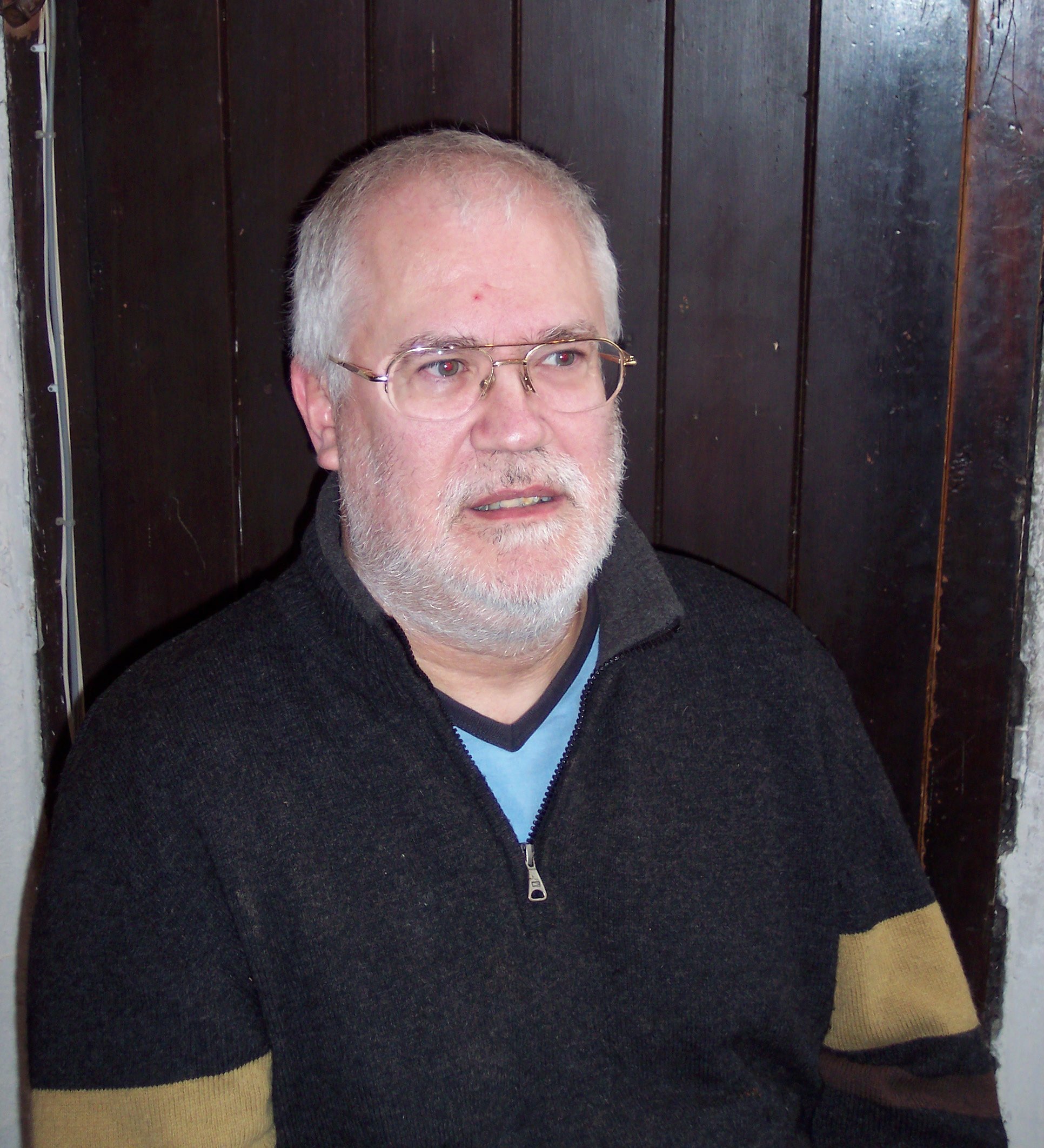 About the Editor Robert P Venour
About the Editor Robert P Venour
I was educated initially in London (Clapton) and then in Welwyn Garden City after moving there in 1963, I left school in 1967 just before my 16th birthday and went to work with a company called MRPRA (Malaysian Rubber Producers Research Association) later to become TARRC (now called Tun Abdul Razak Research Centre). I worked as a laboratory assistant, basically washing up glassware and setting up experiments. This is where I learned to think for myself and gained my real passion for chemistry. While at MRPRA I did my 'A' levels at the local further education college as a part-time student working in the evenings and one day a week on day release.
In 1970 I went to UEA to study Chemistry Sciences and graduated with an Upper Second Class Honours in Chemical Sciences in 1973. It was at UEA that I met my best friends Julian Williams and Dave Ball, and I am glad to say that we have been friends ever since.
After graduating I continued my studies as a postgraduate student working for a further 2 years doing research in sugar chemistry under the tutorship of Dr Alan Haines. To earn money to pay for my studies I taught at the local Cathedral School in Norwich. It was here that I got my interest in teaching and wanted to continue with this as a career.
After a period teaching in various schools learning my craft I moved away from Norwich to Cheshunt. I worked in a school in Cheshunt teaching chemistry to 'A' level. I left there to move to a job with more responsibility. This I found in a private school called Sherrardswood School in Welwyn where I was in charge of chemistry and formed and ran the ICT department for the next 19 years. My health by 2001 was beginning to fail, I decided to take on supply teaching, however, the lure of a more challenging post came my way, and in 2002 I became Head of Chemistry at Verulam School in St Albans. However, by 2005 my health finally gave way and I had to retire. My career lasted for more than 30 years. I retired in 2006.
My hobbies include: Campanology (Church Bell ringing), Opera, (my favourite opera composer is Handel), Travelling (travelled extensively - bit of a Francophile), Cooking (must be the organic chemist in me), favourite colour; blue; favourite charities; The Donkey Sanctuary and MacMillan Nurses; favourite drink; coffee and occasionally red wine (French of course), favourite game; scrabble.
About Assistant Editor Julian O. Williams.
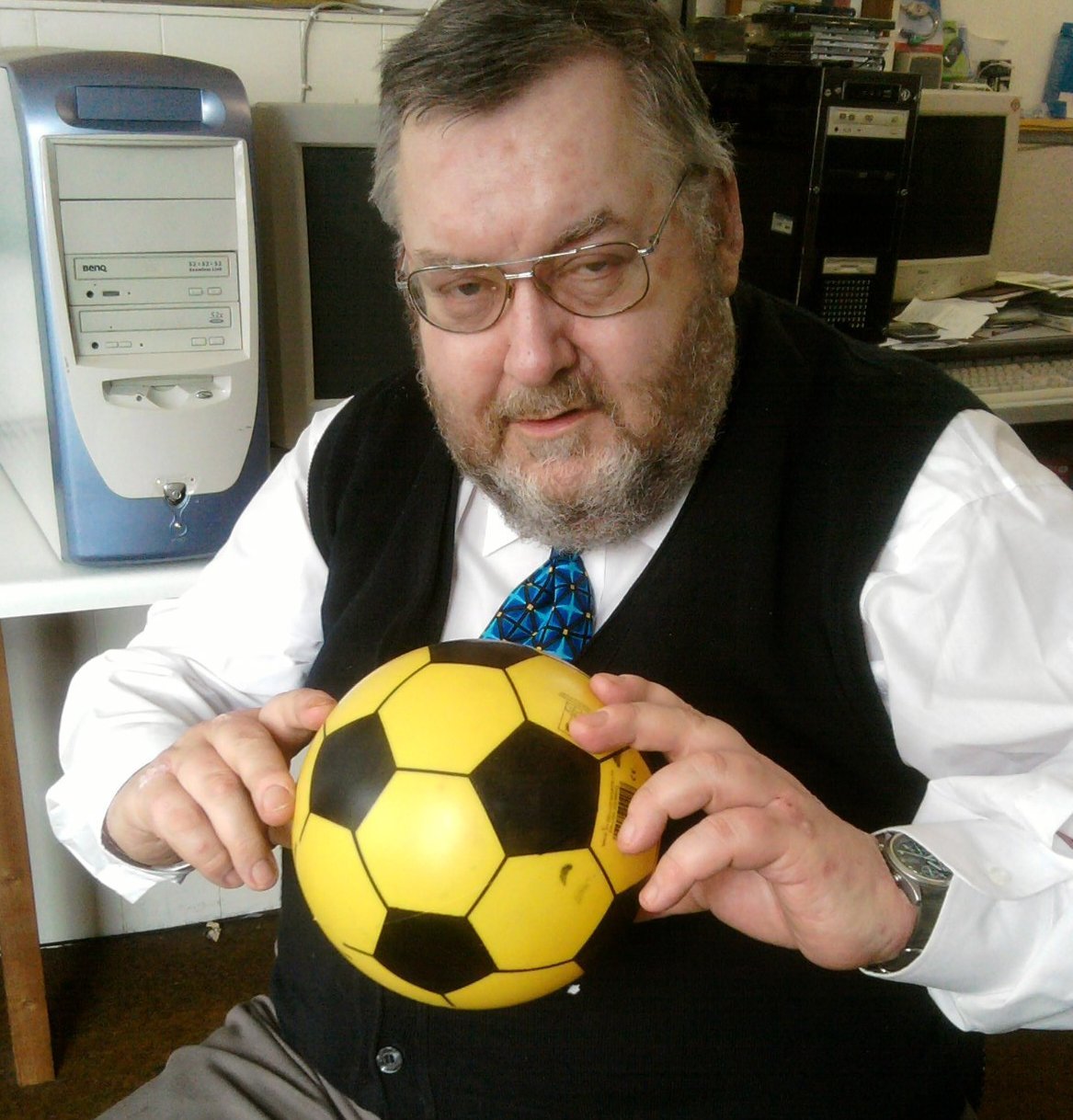 My first school was a conventional and strict preparatory school for boys. In those days one was taught plenty of Latin and Greek, plenty of Mathematics, but very little science. Somewhat contrastingly I studied for my ordinary and advanced level examinations (“O” and “A” Levels) at a progressive coeducational school called Dartington Hall in Devon, which is my county of birth. The chemistry teacher at Dartington was very good and he sparked my interest in organic chemistry.
My first school was a conventional and strict preparatory school for boys. In those days one was taught plenty of Latin and Greek, plenty of Mathematics, but very little science. Somewhat contrastingly I studied for my ordinary and advanced level examinations (“O” and “A” Levels) at a progressive coeducational school called Dartington Hall in Devon, which is my county of birth. The chemistry teacher at Dartington was very good and he sparked my interest in organic chemistry.
From 1970 until 1974 I read Chemical Sciences at the University of East Anglia (UEA), Norwich. At UEA two of my best friends was Robert (Bob) Venour and David Ball, who were then also reading Chemical Sciences. Bob is now the Editor of this web site, which is dedicated to the memory of Dr David Ball.
I graduated from UEA with a B.Sc. (1st Class Hons.) in 1974. However, rather than read for a Ph.D. at that time, I elected to enter the wholesale newspaper distribution industry, which is a rugged type of business, comprising a complex blend of accountancy, advertising, marketing and logistics.
In 1987 after more than a dozen years in the newspaper industry I was granted the opportunity by Professor Stanley M. Roberts to join his research group at the University of Exeter in Devon and to read for the degree of doctor of philosophy. The next few years were very happy and fulfilling for me. My research involved an investigation of the synthetic potential of some benzene-cis-diols, derived by fermentation from benzene, fluorobenzene and 1,1,1-trifluorotoluene. Numerous examples of arene-cis-diol chemistry will be published in due course on this web site. My favourite topics in organic chemistry are the concept of aromaticity, the nature of cycloaddition reactions, in particular the Diels-Alder reaction, and the relatively new field of chemical biotransformations and biotechnology in general.
In 1992 I received my Ph.D. from the University of Exeter, where I remained for a few more years undertaking a variety of industrial and academic postdoctoral assignments, one of the most interesting of which was the writing of a chapter on the formation of tricoordinate carbocations and carbanions for a multi-volume work published by Pergamon-Elsevier.
My postdoctoral work eventually metamorphosed into a very fruitful collaboration between the University of Exeter, Graz Technical University (Austria) and White Knight Technologies, Ltd., my company. This collaborative project devised synthetic routes to polymers designed to act as Organic Light Emitting Diodes (OLEDs), using Ring-opening Olefin Metathesis Polymerisation (ROMP) technology.
Some trivia about myself: favourite colour: blue;
favourite charities: The Red Cross, The Centre for Brain Injury Rehabilitation and Development (B.I.R.D) and Cancer Research UK; favourite drinks: coffee and cognac; favourite composers: from Tchaikovsky to The Rolling Stones and Al Bowlly to Glenn Miller; favourite football team: Arsenal, FC; favourite game: chess; favourite pastime: staring into the “wide blue yonder” and thinking………...
I thank Bob Venour for his kind invitation to join the editorial team. I hope that over the course of time I may bring some interesting science to this fine web site along with some humour and entertainment. I can be contacted at the following email address: jowilliams007@btinternet.com
Organic Chemistry: Past, Present and Future
This website encompasses a wide variety of topics and themes of interest to a broad spectrum of chemistry students, practising chemists and industrialists. One of the main objectives of this website is educational and there is a solid core of basic chemistry, prepared by Robert P. Venour, the Editor in Chief, and aimed at allowing the reader to understand in relatively simple terms some of the ‘grammar and syntax' of organic chemistry.
This site should appeal in particular to undergraduates, college lecturers, schoolteachers and their pupils, especially those considering some sort of course at college, which at least in part involves organic chemistry. Furthermore it is also hoped the lay reader or non-scientist may also find some items of interest. All readers are welcome!
Surrounding the central educational core there is an ever-growing array of specialised articles some of which will be largely educational, while others will cover interesting topics from the fascinating realm of organic chemistry past present and future and the world of science in general.
Specialised articles will draw from the whole world of science embracing many diverse topics: general organic chemistry; synthetic organic chemistry; biotechnology; biotransformations in chemical syntheses; chemo-enzymatic syntheses; fermentation processes; stem cell technology; telomere research; prion research; mechanical and structural engineering; chemical and biochemical engineering; energy conservation; green chemistry; environmental chemistry; green energy generation; theoretical physics; relativity theory; quantum physics; cosmology; string theory; the history and philosophy of science; some speculations about a few esoteric and arcane areas of science; a few simple concepts and ideas in the world of finance, financial publications and capital markets, which may be of interest to young aspiring scientists.
The scientific editorial mixture is leavened with a certain amount of humour and entertainment, because science in general and organic chemistry in particular can be fun; and fun is a vital ingredient of life.
In effect the whole Universe will be our playground – from Atoms to the Andromeda Galaxy and beyond……...
Enjoy!
Dr. Julian Outfin Williams, Ph.D., B.Sc. (Assistant Editor)
How to use this website
This website is not designed for a student with chemistry less than 'A' level knowledge, it is for the student of chemistry doing degree qualifications or someone returning to chemistry after a period away from the subject or a student with a reasonable knowledge wanting to improve their chemistry. I have included many areas of basic chemistry so that you may use these to brush up on weak areas.
It not expected that you should read all of the sections, but firstly to decide which areas interest you most, take those on board and read as much about that area. As this site is for those with an good understanding of chemistry, it starts off running so if your chemistry needs a brush up find the basic stuff first. On this page you will find PDF files (not yet working properly) of the subjects covered so if you want to download these to look at, at your leisure feel free to do so.
I have given many different links so that you can explore, hopefully that will inspire you to go on. If you have any questions please contact me.
Preface by Dr D D Ball PhD BSc (Hons)
Why organic chemistry?
We are organic and can be considered as chemists because we take in chemicals, change these chemicals by means of reactions inside us so that we may grow when young, remain healthy and sustain our survival as long as possible. Some of the chemicals we take in are complex and have to be broken down by molecules such as enzymes.
When we are healthy we look to enhance our well being. We enjoy sports and other leisure activities that give us a 'buzz'. That 'buzz' comes from the effects of our bodies producing adrenaline {figure 1} and noradrenaline {figure 2} when we are stimulated by activities that thrill us.
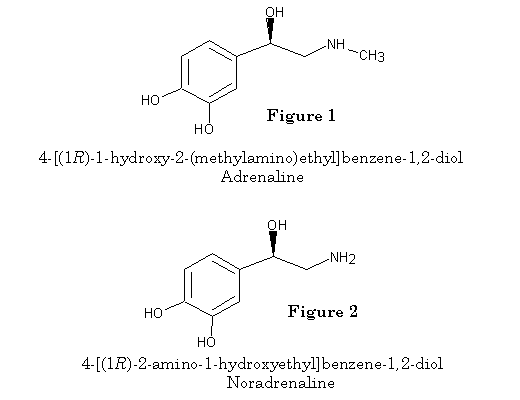
If we overdo certain activities and experience pain our bodies respond with pain killers such as endorphins. If we become injured or we suffer a malfunction we visit the doctor who may prescribe artificial painkillers e.g. ibuprofen. {figure 3} This molecule has two forms the methyl group shown with the zig-zag bond can either be up or down in that position, this is a racemic mixture.
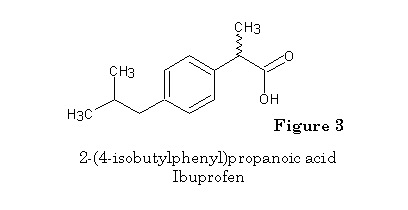
If the chemical provision needs to be monitored by a doctor the chemical may be obtained by prescription e.g. tramadol {figure 5} or, in instances where a class A drug is required, such as morphine {figure 4} or which are given in a hospital environment.
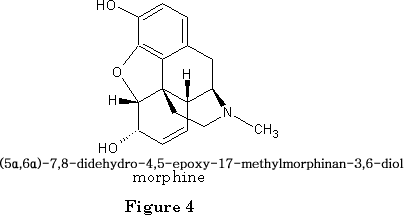

Figure 5
HOME




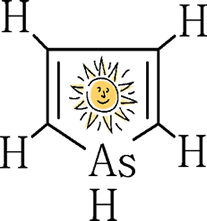



 About the Editor Robert P Venour
About the Editor Robert P Venour  My first school was a conventional and strict preparatory school for boys. In those days one was taught plenty of Latin and Greek, plenty of Mathematics, but very little science. Somewhat contrastingly I studied for my ordinary and advanced level examinations (“O” and “A” Levels) at a progressive coeducational school called Dartington Hall in Devon, which is my county of birth. The chemistry teacher at Dartington was very good and he sparked my interest in organic chemistry.
My first school was a conventional and strict preparatory school for boys. In those days one was taught plenty of Latin and Greek, plenty of Mathematics, but very little science. Somewhat contrastingly I studied for my ordinary and advanced level examinations (“O” and “A” Levels) at a progressive coeducational school called Dartington Hall in Devon, which is my county of birth. The chemistry teacher at Dartington was very good and he sparked my interest in organic chemistry.